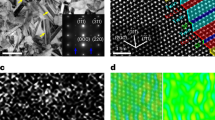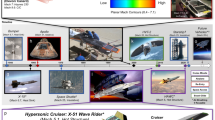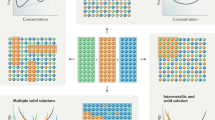Abstract
PRE-CRACKED specimens of an alloy of titanium, aluminium, molybdenum and vanadium (90: 8: 1: 1) with a yield strength of 107,000 lb./in.2 were stressed in saturated hydrocarbons using the cantilever beam test designed by Brown1. The hydrocarbons were n-propane, and n-heptane and n-hexane of commercial purity (99+ mole per cent). These were contained in ‘Tygon’ or polyethylene cemented to the specimens with silicone rubber cement. During a test, the surface of the specimen containing a small fatigue crack was stressed in tension while submerged in one of the hydrocarbons.
This is a preview of subscription content, access via your institution
Access options
Subscribe to this journal
Receive 51 print issues and online access
$199.00 per year
only $3.90 per issue
Buy this article
- Purchase on Springer Link
- Instant access to full article PDF
Prices may be subject to local taxes which are calculated during checkout
Similar content being viewed by others
References
Brown, B. F., and Beachem, C. D., Corrosion Sci., 5, 745 (1965).
Author information
Authors and Affiliations
Rights and permissions
About this article
Cite this article
SANDOZ, G. Stress Corrosion Cracking Susceptibility of a Titanium Alloy in a Non-electrolyte. Nature 214, 166–167 (1967). https://doi.org/10.1038/214166a0
Received:
Revised:
Issue Date:
DOI: https://doi.org/10.1038/214166a0
Comments
By submitting a comment you agree to abide by our Terms and Community Guidelines. If you find something abusive or that does not comply with our terms or guidelines please flag it as inappropriate.



